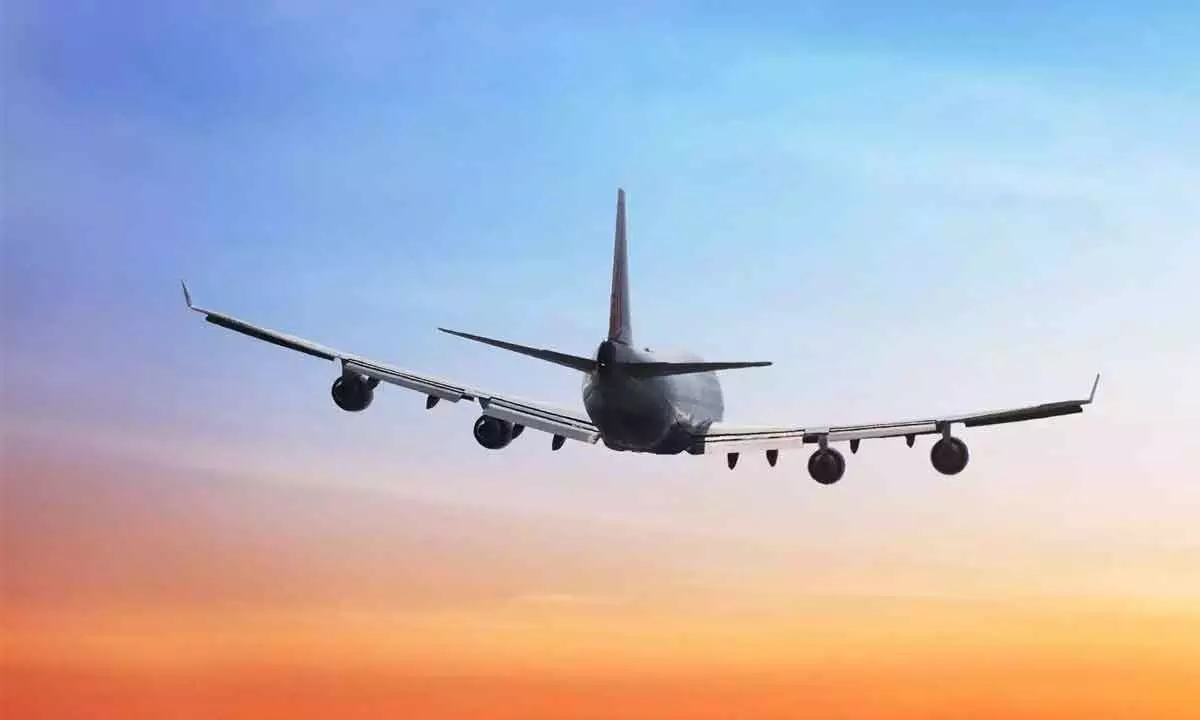41% surge in airfares likely to slow down industry's long-term recovery
Share :

Air travel has become an integral part of people's lives, offering convenience and speed when it comes to covering long distances.
New Delhi: Air travel has become an integral part of people's lives, offering convenience and speed when it comes to covering long distances.
In recent years, the Indian aviation industry has experienced significant growth, with a surge in the number of passengers opting for air travel. However, with this growth comes certain challenges, one of them being the frequent fare hikes imposed by airlines.
According to the Airports Council International (ACI Asia-Pacific), India has recorded the highest surge in airfares among other countries in the Asia Pacific and Middle East regions.
The rise in airfares in India, which stands at 41 per cent, has raised concerns about the long-term recovery of the civil aviation industry.
Other countries experiencing significant fare hikes include the United Arab Emirates (34 per cent), Singapore (30 per cent), and Australia (23 per cent).
The Central government has claimed that the rise in airfares is limited to select routes.
Last month, Union Civil Aviation Minister Jyotiraditya M. Scindia emphasised the importance of maintaining reasonable airline ticket prices following the resumption of domestic air travel after the Covid-19 lockdowns.
Earlier, in a meeting with the Airlines Advisory Group, the minister expressed the need for maximum prices to be within an acceptable range and conveyed this message clearly to the airlines.
Scindia had said that it is crucial to avoid exorbitant prices, especially considering recent incidents such as the Go First situation, as well as other unforeseen events or emergencies.
He emphasised that the government cannot permit prices to escalate beyond what is justifiable while saying that they are monitoring the fares on a daily basis.
To regulate fares, the airlines were urged to self-monitor prices, particularly on routes previously served by the grounded Go First airline.
“The objective is to ensure that air travel remains affordable and accessible for passengers, while also taking into account the various challenges faced by the aviation industry,” Scinida had said while addressing a press conference here in Delhi.
Since the repeal of the Air Corporations Act in 1994, airfares in India have not been regulated by the government. Airlines have been granted the freedom to charge reasonable fares based on their operational viability, subject to compliance with Rule 137 of the Aircraft Rules, 1937. The Directorate General of Civil Aviation (DGCA) acts solely as an aviation safety regulation body and does not determine airline tariffs.
The recent surge in airfare can be attributed to the rise in aviation turbine fuel (ATF) prices and supply chain disruptions following the Ukraine-Russia war. These factors have contributed to the hike in airfares, as stated by the ministry.
“As the Indian aviation industry continues to grapple with fare increase challenges, finding a balance between affordability and operational viability remains a crucial task. Ongoing discussions and collaboration between the government, airlines, and industry stakeholders are necessary to address the concerns of travellers while ensuring the sustainable growth of the civil aviation sector,” said an expert.
